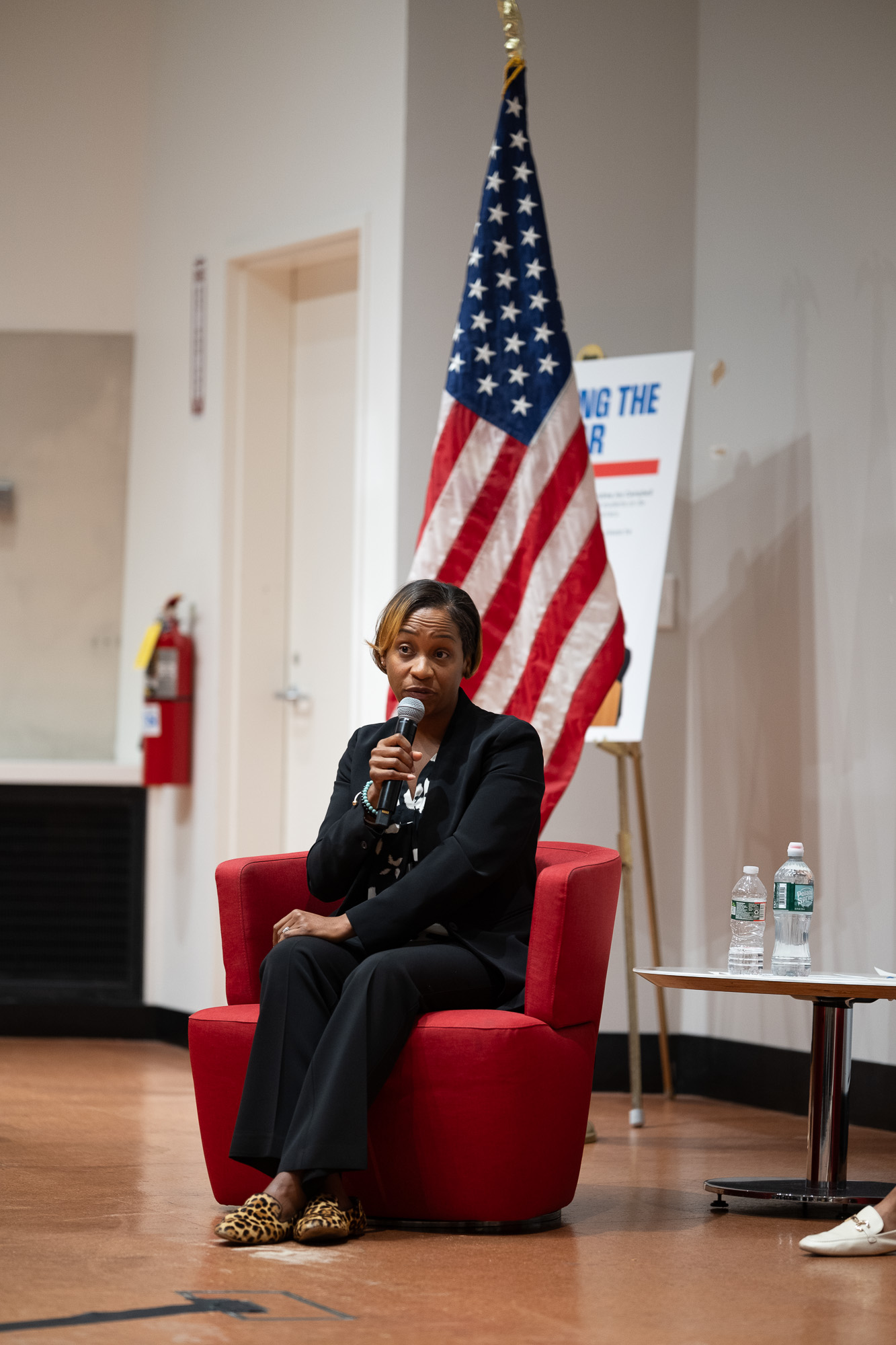In a fireside chat at Boston University’s School of Law Tuesday night, Massachusetts Attorney General Andrea Joy Campbell addressed student concerns regarding the current legal landscape and the work her office is doing to combat state challenges.

In collaboration with Northeastern University and Western New England Schools of Law, Campbell was invited to BU to speak about issues of concern in Massachusetts, including access to reproductive health care, free speech and affordability.
Campbell reflected on the loss of her twin brother as a driver of her work. Her brother died while in custody of the Department of Corrections from not receiving adequate health care for his autoimmune disease, she said. Campbell said this experience was a time she felt “left out” by the government, and it has since shaped her work in office.
“I pull on that story not only for personal strength but to really ensure that the office itself, the office that I get to lead of close to 700 people … really meets people where they are, really serves those folks who feel left out, left behind, invisible,” she said.
Shortly after taking office, Campbell formed the Reproductive Justice Unit to protect Massachusetts’ reproductive health laws and address disparities in maternal health.
Campbell said not caring about gender affirming care or reproductive rights because it doesn’t affect you is “nonsense.”
“It’s called health care,” she said. “It’s called human rights, because if [the federal government] can come for a certain type of health care that is not appropriate to them for whatever reason, they can come for other forms of health care, too.”
Addressing concerns toward the punishments of students involved in activism on and off campus, Campbell reiterated her office’s commitment to ensuring students are able to exercise their First Amendment rights.
“We have seen … incidents that are absolutely concerning,” she said. “We have stood, sometimes publicly, sometimes behind the scenes, with students, with academic leaders, with professors who are standing up and on the right side of the First Amendment.”
Campbell said her office has had direct conversations with university administrators regarding student activism. Recently, her office filed litigation for international students to prevent the revocation of their visas because they take a certain political position, she added.
“We’re standing up in the courts on everything having to do with free speech,” Campbell said.
Additionally, Campbell discussed affordability, which she said is the “number one issue in Massachusetts” because “everything is too expensive.”
Campbell’s office is prioritizing the housing crisis in several ways, she said, including developing more affordable housing with the first-ever Housing Affordability Unit and focusing on housing access through the Civil Rights Division.
Campbell added that her office is “fighting” for the Supplemental Nutrition Assistance Program, set to abruptly stop Nov. 1 due to the federal government shutdown, noting recipients include college and law students.
Diego Mahoney, a first-year BU law student who attended Campbell’s discussion, said he appreciated her “authentic” nature and transparency on topics of importance to the BU community.
“She was talking very directly about issues that I feel other people would kind of skirt around or talk circles around and wouldn’t actually directly address them,” he said.
To close the discussion, Campbell emphasized the need to continue fighting against constitutional threats from the Trump administration.
“We’re fighting for our people. We’re fighting for the rule of law,” she said. “And we’re doing it unapologetically while seeing the humanity in everyone.”























































































































